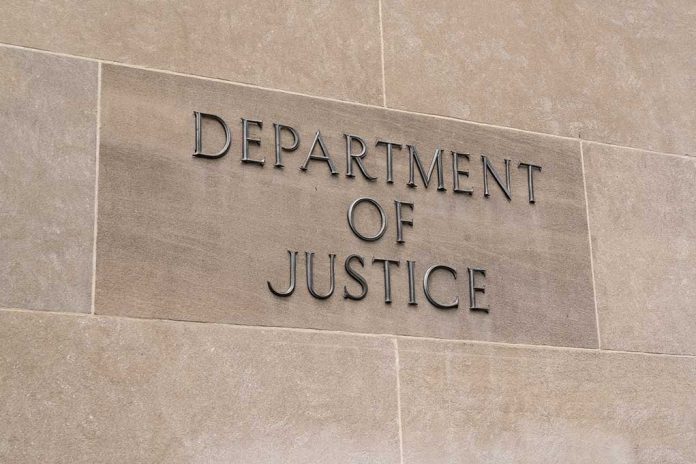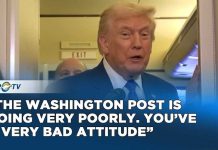
Chinese nationals smuggled a deadly fungus capable of devastating American food supplies into a Michigan laboratory with over $7.6 million in U.S. government funding, sparking new fears of agroterrorism and CCP infiltration of vital research institutions.
Key Takeaways
- Two Chinese nationals, Yunqing Jian and Zunyong Liu, were charged with smuggling Fusarium graminearum, a fungus described as a “potential agroterrorism weapon,” into the U.S.
- The researchers worked at a University of Michigan lab led by Chinese scientists who received over $7.6 million in NIH funding for plant immunity research.
- Evidence shows Jian’s loyalty to the Chinese Communist Party, with investigators uncovering prior smuggling attempts and visa fraud.
- The incident reveals continuing vulnerability of U.S. research institutions to foreign influence, similar to concerns raised during the COVID-19 pandemic.
- Federal officials consider the case a significant national security concern, highlighting threats to America’s agricultural security.
Dangerous Pathogen Smuggled Into American Heartland
The U.S. Department of Justice has charged two Chinese nationals, Yunqing Jian and Zunyong Liu, with smuggling a dangerous biological pathogen into the United States that officials describe as a potential weapon for agroterrorism. The fungus, Fusarium graminearum, poses a severe threat to key agricultural crops including wheat, corn, and barley, causing millions in annual crop losses. This pathogen can produce mycotoxins harmful to both humans and livestock, making its unauthorized importation particularly concerning for national security and public health officials monitoring threats to America’s food supply.
According to federal prosecutors, Jian and Liu were working at a University of Michigan laboratory led by senior Chinese scientists Ping He and Libo Shan, who received substantial U.S. government funding. Investigation records show the lab received over $7.6 million from the National Institutes of Health for plant immunity research. The suspects allegedly concealed their connections to China, with evidence showing Jian received Chinese government funding for research on the pathogen and maintained allegiance to the Chinese Communist Party, all while operating in sensitive research facilities on American soil.
A Pattern of Chinese Infiltration
The smuggling incident is not isolated, according to federal investigators. Court documents reveal the suspects were involved in previous unauthorized transportation of biological materials across international borders. Liu admitted to customs officials that he smuggled the fungus into the U.S. specifically for research at the University of Michigan. The Justice Department uncovered evidence that Jian had pledged loyalty to the Chinese Communist Party and maintained active connections with Chinese government institutions while working with sensitive pathogens in American research facilities funded by U.S. taxpayers.
Two Chinese nationals were charged with smuggling the Fusarium graminearum fungus—an agroterrorism weapon—into the U.S. for research. The pair’s connection to the Chinese Communist Party raises serious national security concerns.https://t.co/BdrCSOc9iP
2 Chinese Nationals…
— Spotlight on China (@spotlightoncn) June 4, 2025
“The CCP’s quiet infiltration of our research ecosystem is a direct threat to our national security, biosecurity, and economic independence,” said Erica Knight
This case echoes concerns raised during the COVID-19 pandemic about foreign influence in U.S.-funded research. Senator Ron Johnson has been vocal about these ongoing threats to American security interests. “It has been obvious for years that Anthony Fauci and Francis Collins not only funded dangerous research, but directed funding to scientists loyal to China, not America,” Johnson stated, drawing parallels between this incident and previous concerns about U.S. research funding flowing to entities with questionable loyalties and connections to foreign governments with adversarial interests.
Agroterrorism Concerns Grow
The potential for agroterrorism—using biological agents to target agricultural resources—represents a significant vulnerability in national security. United States Attorney Gorgon emphasized the severity of the situation, stating: “The alleged actions of these Chinese nationals—including a loyal member of the Chinese Communist Party—are of the gravest national security concerns. These two aliens have been charged with smuggling a fungus that has been described as a ‘potential agroterrorism weapon’ into the heartland of America, where they apparently intended to use a University of Michigan laboratory to further their scheme.”
“Okay, the Chinese are adept at infiltration, at espionage, and at doing it in a way that is, if not inscrutable, intended to be very quiet,” said Robert Charles
FBI Detroit Field Office Special Agent in Charge Cheyvoryea Gibson emphasized the collaborative effort to address this threat: “These individuals exploited their access to laboratory facilities at a local university to engage in the smuggling of biological pathogens, an act that posed an imminent threat to public safety.” The University of Michigan claims it received no Chinese government funding for the research and is cooperating with federal investigations. However, this incident raises serious questions about vetting procedures for researchers working with potentially dangerous materials in taxpayer-funded American institutions.
Broader Implications for National Security
This case highlights the ongoing vulnerability of American research institutions to foreign infiltration. As investigations continue, officials must determine whether this represents an isolated incident or part of a coordinated effort to target U.S. agricultural security. The charges against Jian and Liu include conspiracy, smuggling, false statements, and visa fraud. With a preliminary hearing scheduled in federal court in Detroit, prosecutors will decide whether to seek a felony indictment upon completion of their investigation into what appears to be a deliberate attempt to bypass security measures designed to protect America’s vital agricultural resources.
The incident underscores the need for heightened vigilance and improved security measures within America’s academic and research communities. With Chinese nationals continuing to gain access to sensitive research through legitimate academic channels while potentially serving foreign interests, the case serves as a stark reminder of the ongoing threats to national security that extend beyond traditional espionage into areas of biological and agricultural security. As President Trump has consistently warned, America’s research institutions require stronger protections against foreign exploitation that undermines national security interests.














